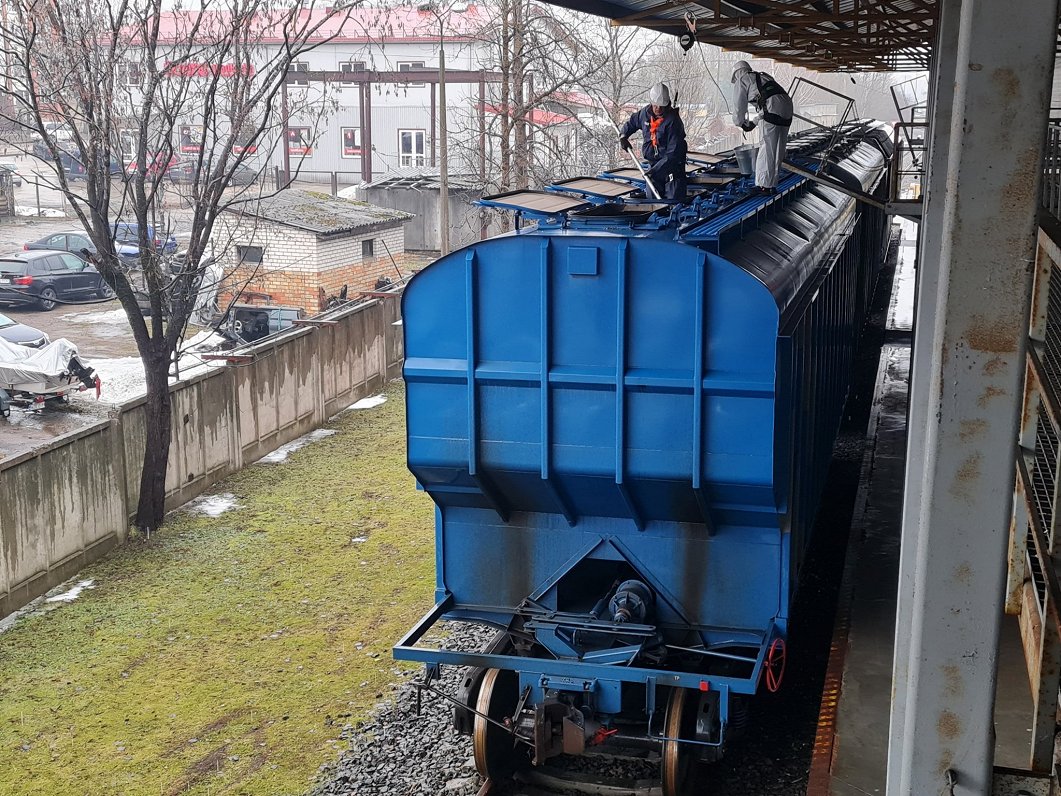The names of companies exporting to Russia and Belarus are now available to the public again on the website of the Ministry of Economics. The list has become shorter since the last time it was published. There were around 350 businesses in December 2022, now 143 on the reworked list of last week. Among them are manufacturers of food, clothing, medicines, and auto parts.
LTV investigated the scope of activities of the companies. The most on the list are companies that do logistics. There are 50 of them. There are also 26 companies producing or marketing a wide range of metalworking equipment, conditioners, building materials such as various specific pipes and paints. 17 companies in the food sector continue to cooperate.
Several companies were attempted to be contacted by LTV. The comments were brief and elusive, with promises to respond in writing.
Chocolette Confectionary Ltd: “I will transfer to a Board Member and then we will figure out how far we are willing to participate depending on the subject and range of issues and so on.”
“Aizkraukles Saldumi”: “All questions to email please.”
Baltwerk Ltd: “I'm going to pass on your number and I'll call you, okay? I shall pass on to the Member of the Management Board.”
LTV received the call from auto parts dealer Baltwerk. The company disagreed with the interview, but said the Russian market would soon be abandoned. Businesses to whom e-mails have been sent, on the other hand, answered briefly, largely explaining that the volume of trade is gradually being reduced.
Only underwear manufacturer Lauma lingerie sent a wider response. The letter States that “Lauma brand was created in 1971, when Latvia was part of the Soviet Union, and already at that time a large part of the production was exported to Russia and Belarus”.
Last year, nearly 85% of sales were made up of exports to Russia and Belarus, and ending exports would mean shutting down the company.
Only three companies have published explanations on the list published by the Ministry of Economics. SIA “SONORA RW” explains that exports are not handled, only provided by warehouse service. But drugmakers Olainfarm and Grindeks have pointed out that restricting drugs would not be humane.
“Of the more than 30 products previously available on the Russian market, the number has now been reduced to six, moreover, these products are intended mainly for the treatment of chronic diseases in the civilian population and have been left in the AS “Grindeks” portfolio for humanitarian reasons,” the company's explanation said. Olainfarm, on the other hand, pointed out that “according to data, we see that Ukrainian producers' medicines are still available in Russia”.
Economics Minister Viktors Valainis (Union of Greens and Farmers) said companies are being spoken to, helped with new contacts and participation in exhibitions to make the transition to other markets a success. With some companies, including drug manufacturers, it's more complicated.
According to the Latvian Investment and Development Agency, access to new markets, participation in exhibitions, marketing abroad is currently supported in the innovative business development program of small and medium-sized enterprises with funding of EUR 13 million. So far, ten companies have responded and 31 export aid operational plans have been submitted.






























